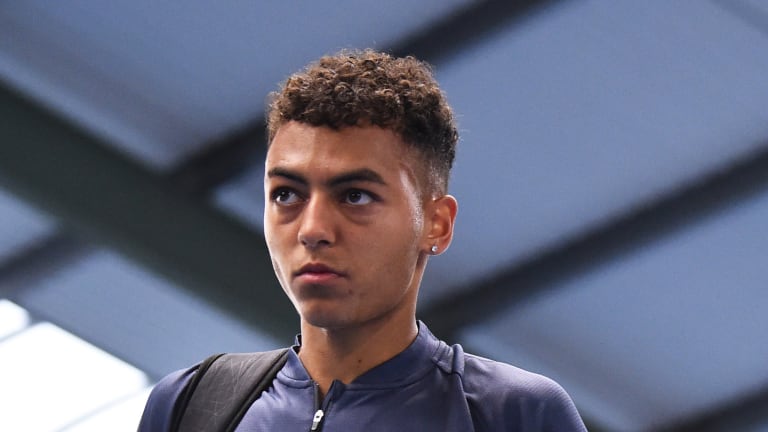Getty Images
Although Jubb had no dad to look up to, he found a father figure in Carmichael during his impressionable years.
“I would say that he was probably the other main rock in my life. He helped me through a massive part of my life, said Jubb. “He would say it is what it is or you can’t change anything. You can dwell on it or you can keep going. He really helped me keep that mindset throughout. I could go to him with anything. Without Johnny, I would definitely not be here today. He wasn’t just a tennis coach to me. He is literally my savior.”
While most tennis fans look up to stars such as Roger Federer and Rafael Nadal, Jubb found a hero in American player Frances Tiafoe. Like Jubb, Tiafoe was able to overcome obstacles to achieve his dreams of becoming a tennis professional.
“I had a phase when I started watching Frances when I was 13 or 14. I was watching his videos and his upbringing because I felt that I could really relate to that,” said Jubb. “He obviously had a tough upbringing and he found a way to do it so that really gave me the passion and drive to believe that I could also.”
A Cinderella story would not be complete without a trip to the ball. For Jubb, this came in the form of a wild card from the LTA to compete in the main draw at 2019 Wimbledon. Once Tiafoe found out, he requested that his locker be moved next to Jubb's. The two have remained close friends ever since.
Jubb hasn't spent much time in the pro ranks, but if his trajectory at South Carolina is any indication, there is plenty more to come. He quickly excelled in his freshman year, going on a 10-match win streak at No. 6 singles. By his sophomore year, he took over the No. 1 spot on the team and has never looked back.
In his junior year, Jubb had his sights on being the best NCAA tennis had to offer. To cement that goal, he would have to solve Mississippi State's Nuno Borges, the top-ranked player in the country whom Jubb had lost to twice during the regular season. Jubb ultimately learned from those defeats and flipped the script in the men's singles championship match at the NCAA tournament.
“When Paul arrived, he was a 16-year-old kid that walked into Disney World,” Goffi said as the team prepared for the 2020 season, which would be Paul’s last as a Gamecock. “He wanted to be a pro tennis player from the moment he picked up his racquet. When he got here, this was his next step. He said, ‘well I have to make this work because other wise I don’t have any other option.’ But Paul has been mature, he has had to earn things on his own for a long time, so he was ready to rock and roll from the day he got in.”
Although the global spread of COVID-19 in 2020 put an end to what would have been Jubb's senior season, Goffi only sees a brighter future ahead for his once diamond in the rough.
“Jubby doesn’t take anything he has for granted. Winning NCAAs is great for him and it’s an amazing achievement very few people ever get to do that in their lives. But that’s not his end game. He definitely wants to go on he wants to be a pro, he wants to be a Grand Slam champion so he is going to keep moving.”
And while Jubb may not have many memories of his parents, their influence will stay with him forever—evidenced by the permanent reminder inked on his body.
“My tattoo on my left rib is my parents’ names with clouds and wings around it. Obviously I wish they were still here today,” Jubb said. “But I feel like this is what I was meant to go through and what I was meant to overcome. I’m so thankful for everyone else who has helped me along the way and been part of my journey. One of my biggest drives is making sure that the people that have helped me it’s been worth it.”

